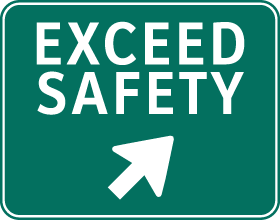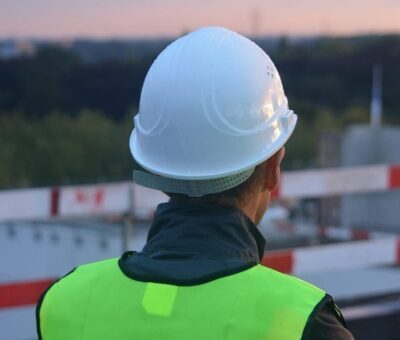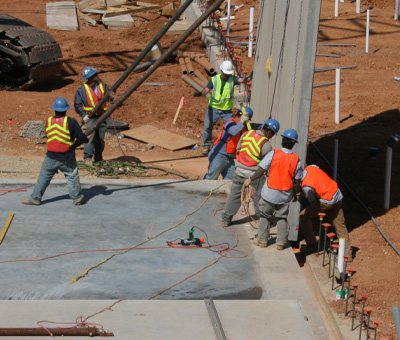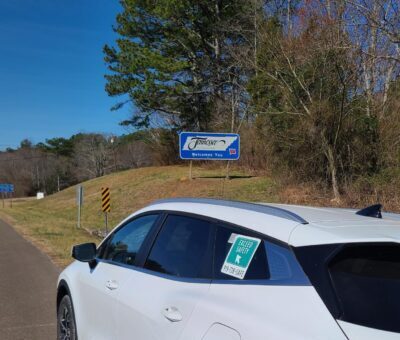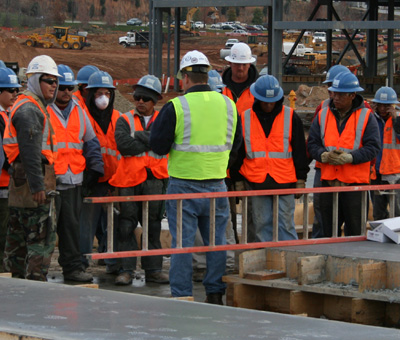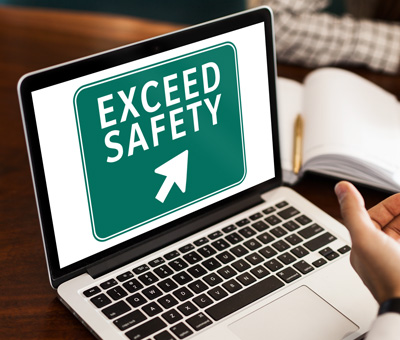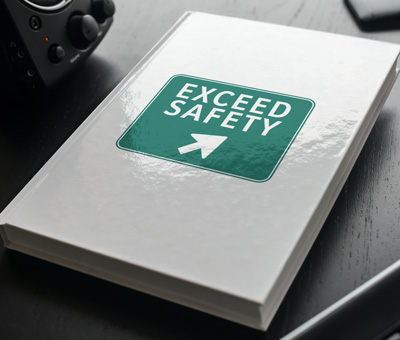Whether a misstep causes a fall or a natural disaster causes an evacuation, emergencies happen. Emergency preparedness and response can mean the difference in avoiding an injury or ending with a fatality.
Emergencies come with little to no warning. While we may think these are extreme situations that will “never” happen to us, the reality is that an emergency situation can happen at any time, anywhere, to any person. We must be prepared for any possible situation at all times.
The best time to plan for an emergency is before it happens! While there should be a leader in charge of emergency plans, it is everyone’s responsibility to know the plan and follow the plans to lessen injuries and damage to work sites as well as at home.
Natural Disasters and Utility Outages
Some natural disasters such as hurricanes or tornadoes may be predicted by meteorologists following the storm which gives us some time to prepare, but others such as earthquakes, fires, or flash flooding do not. Do you have ample supplies? First aid training? A plan of where to gather as soon as reasonably possible? It is essential to have plans in place and for each person to follow the plan.
What about outages such as electricity, water, or other essential services? Are back up resources in place? Are generators available and maintained in working order? Is there a backup water supply? Food sources? Battery powered radios and cell phones charged?
Chemical Emergencies
While we may be more prepared for natural disasters and outages, the general population is not typically prepared for chemical emergencies such as toxic gas releases, chemical spills, or radiological accidents. These situations require experts in the field to have quick responses to keep the public safe, but it is everyone’s responsibility to stay alert and follow the directions of first responders and law enforcement as emergency evacuations may take place.
It is a good idea to have an emergency bag packed with everything you and those with you will need for the next 24-48 hours. Contents of the bag should include prescription medications, cash, bottles of water, flashlights, etc.
Civil and Social Emergencies
Preparedness for social and civil emergencies requires a different set of plans and responses. Law enforcement and first responders have plans in case of civil disturbances or terrorism, but how should individuals be prepared? First and foremost is important to follow directives of those in authority, but would you know what to do or where to go if communication is cut off? What about workplace violence? How would you defend yourself? Do you have an exit plan or a place to hide? Do you have a discrete way to contact authorities? Quick thinking, based on a plan in place for all possible scenarios, could save your life and those around you. For more information on target hardening and workplace safety, see this article.
General Emergency Preparedness
In preparation for any type of emergency, there are specific plans to have in place and actions to take:
- Know first-aid procedures and where first-aid supplies and AED are located. There should be clearly labeled signage so that anyone can find these in an emergency.
- Have a list of people to contact; this should include both internal staff numbers as well as those of external resources
- Have evacuation plans and maps for all possible situations, including meeting places
- Follow all reporting procedures
- Sign up for emergency alerts to get timely information.
Are you prepared to handle an emergency? Have a plan. Know the plan. Follow the plan.
